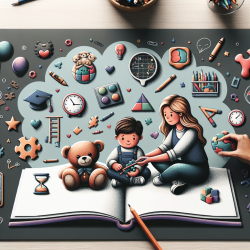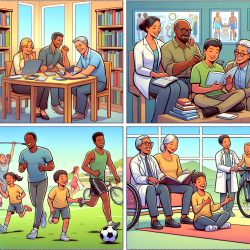In the ever-evolving landscape of education, there is an increasing recognition of the role that mental health and emotional well-being play in a child's ability to succeed academically. At TinyEYE, we understand that supporting the whole child is crucial. This is where play therapy comes into its own as a transformative tool.
The Foundation of Play Therapy
Play therapy is grounded in the belief that play is the language of children. Through play, children express themselves in ways that words may not allow. Accredited Play Therapist Carolina Critchley emphasizes that "children can't change their story, but they can change their view about themselves in the story." This empowerment is at the heart of play therapy.
Forms and Stages of Play
- Unoccupied Play (0-3 months): Involves movements such as kicking and waving arms to develop spatial awareness.
- Solitary Play (0-2 years): Children play alone, enhancing motor skills and problem-solving abilities.
- Spectator/Onlooker Play (2 years): Observing others helps develop social awareness and emotional intelligence.
- Parallel Play (3-4 years): Playing alongside peers fosters individual preferences and social skills.
- Cooperative Play (4+ years): Engaging with others in shared activities enhances negotiation skills and role understanding.
Sue Jennings notes that these forms of play are essential for children's development across various domains including cognitive, emotional, and social skills.
The Multidisciplinary Approach: Whole Child Therapy
Nerys Hughes, a Clinical Director with a focus on interdisciplinary therapy, champions the integration of occupational therapy, speech and language therapy, and play therapy. This approach ensures that every aspect of a child's development is supported.
Mental Health Considerations
Mental health statistics highlight the urgent need for supportive interventions in schools. The Centre for Mental Health provides valuable insights into these challenges. By incorporating play therapy into educational settings, schools can address emotional difficulties effectively. Tools like Goodman’s Strength and Difficulties Questionnaire help identify areas where children may need support.
The Impact on Schools: Benefits of Play Therapy
The integration of play therapy in schools offers numerous benefits:
- Improved communication skills among students.
- Enhanced concentration and listening abilities.
- A reduction in behavioral issues leading to fewer exclusions.
- An increase in attendance rates due to a more supportive school environment.
Educators can work closely with play therapists by including therapy sessions in Educational Health Care Plans (EHCPs) and undertaking trauma-informed practice training.
Implementing Play Therapy: Practical Steps for Educators
Schools can take proactive steps to integrate play therapy:
- Collaborate with accredited play therapists listed on the “Play Therapy Register.”
- Email the WCT team at admin@wholechildtherapy.com for guidance on implementation.
- Encourage participation in group or individual play therapy sessions tailored to student needs.
The benefits of incorporating this therapeutic approach are profound, fostering an inclusive and nurturing learning environment that supports every child's potential.
For more information, please follow this link.










